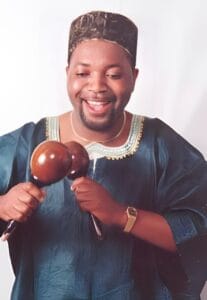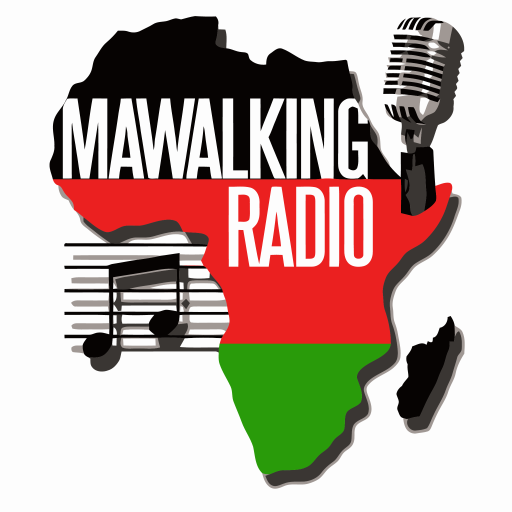
Luciana Demingongo: The Voice of Congolese Rumba
Early Life and Musical Beginnings
Born on February 28, 1960, in Kinshasa, Luciana Litemo Demingongo grew up in the heart of the bustling Congolese capital, where music was more than entertainment—it was a way of life. His passion for music emerged at an early age, fueled by the sounds of local rhythms and the rich musical heritage of the Congo. Luciana’s voice, often referred to as “Rossignol” (the Nightingale), quickly distinguished him as one of the most unique voices in Congolese rumba. This distinctive tenor would later earn him a place among the giants of Congolese music.
Joining Viva La Musica and Choc Stars
In the early 1980s, Luciana Demingongo made his mark by joining one of the most iconic Congolese bands of the time, Viva La Musica. Founded by the legendary Papa Wemba, Viva La Musica was a breeding ground for talent, producing some of the greatest names in Congolese music. Luciana’s time with the group exposed him to international audiences, thanks to the group’s growing popularity across Africa and Europe. His melodic voice was instrumental in several of the band’s hit songs, propelling Viva La Musica’s reputation as a leader in the genre.
Not long after his success with Viva La Musica, Luciana joined Choc Stars, another powerhouse of Congolese rumba. The band, led by Bozi Boziana, was known for its distinctive blend of traditional rumba and modern influences. Luciana’s vocal style fit seamlessly with the group’s vision, and his contributions added depth to their already vibrant sound. During his tenure with Choc Stars, he collaborated with legends like Ben Nyamabo and Carlyto Lassa, further solidifying his role in shaping the Congolese rumba scene.
Formation of Royaume Zipompa-Pompa and Nouvelle Generation
Luciana’s ambition and creativity drove him to co-found the band Royaume Zipompa-Pompa alongside other notable musicians, such as Awilo Longomba, Lidjo Kwempa, and Bongo Wende. This collective marked a new chapter in his career, showcasing his ability to innovate within the genre. Royaume Zipompa-Pompa’s sound was characterized by a more modern and energetic approach to rumba, blending traditional Congolese rhythms with elements of soukous and other African genres. This collaboration helped elevate the status of the group, making it one of the most exciting acts of its time.
He later went on to form Nouvelle Generation De La République Démocratique Du Congo, a band that aimed to preserve and modernize Congolese music for future generations. Their 1993 album, Luciana Et Nouvelle Generation De La République Démocratique Du Congo, was a testament to Luciana’s leadership in the group. The album received critical acclaim for its intricate guitar work and layered vocals, with Luciana’s voice front and center.

Hit Albums and Songs
Luciana Demingongo’s solo career blossomed in the 1990s, with several albums that demonstrated his versatility and depth as an artist. His 1996 album Sang Bleu “Aziza”, released by IMA Records, was a major success. It included tracks that reflected his ability to adapt traditional Congolese rumba into contemporary contexts, bringing it to a wider audience.
In 1999, Luciana released Feza, an album that featured intricate guitar melodies and rhythms that exemplified the Congolese rumba sound. Released by Ngoyarto, Feza solidified his place as a leading figure in the genre. The song “Aziza,” a fan favorite, became an anthem that was played across Africa, making his voice instantly recognizable.
Collaborations with Ballou Canta and Joly Mubiala
Luciana’s collaborations have been some of the most fruitful in Congolese music. In 2002, he teamed up with the talented vocalist Ballou Canta for the album Pool Malebo. This partnership combined the best of both artists’ styles, creating a harmonious blend of traditional rumba and modern soukous. Two years later, they reunited for Rumba Lolango in 2004, released by Doçura, continuing their successful musical partnership.
His collaboration with Joly Mubiala on the 1998 album Beauté Ya Mtv was another highlight in his career. Together, they produced soulful, heart-wrenching songs that spoke to the everyday struggles of the Congolese people, all the while staying true to the rich musical tradition of rumba.
Continued Legacy in Congolese Music
Luciana’s contributions to Congolese rumba have extended well into the 21st century. His 2009 album Zanzibar and his 2015 release Romeo Sans Juliette demonstrate his enduring ability to create timeless music. His collaborations with other artists on compilations, such as Prolongation Ntshié – Mando, feature him alongside greats like Papa Wemba and Bozi Boziana, further proving his status as a key figure in the Congolese music scene.
The Nightingale’s Lasting Influence
Luciana Demingongo’s impact on Congolese rumba cannot be overstated. Whether as a solo artist, a collaborator, or a band member, his voice continues to resonate across the continent and beyond. His ability to bridge the traditional with the contemporary has left an indelible mark on the genre, ensuring that his legacy will be cherished for generations to come.



